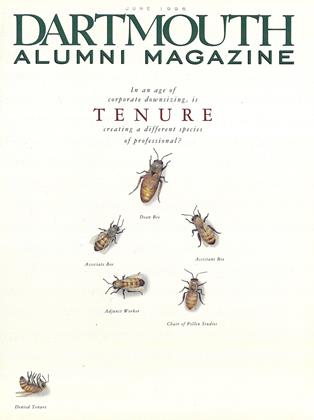Truth, Being, and Rhinoceroses
Jorge Luis Borges, "Deutsche" Requiem "in Labyrinths: Selected Stories and Other Writings (New Direction, 1962)—An imprisoned Nazi awaiting execution describes how he became a Nazi and why he killed Jews.
Gunter Grass, The Tin Drum (translated by Ralph Manheim; Vintage International, 1990)—In Nazi Germany, a dwarf—the antithesis of the Aryan ideal—searches for identity in a Polish town conquered once by Russians and then by Germans.
Mikhail Bulgakov, The Master and Margarita (translated by Michael Glenny; Knopf, 1992)—Bulgakov's fantasy captures the moral failings of Communist realities.
Eugene Ionesco, Rhinoceros and Other Plays (translated by Derek Prouse; Grove Press, 1960)— When a disease turns people into rhinoceroses, the only person not affected is seen as a monster in this play about conformity.
Vaclav Havel, Living in Truth (edited by Jan Vladislav; Faber and Faber, 1989) and Milan Kundera, The Unbearable Lightness of Being (translated by Michael Henry Heim; Harper, 1991)—Compatriots Havel and Kundera were once friends, but their relationship was strained by their different choices: Havel stayed in the former Czechoslovakia and worked for change; Kundera fled to France to write. A double reading of Havel's essays and Kundera's novel takes us through different degrees of engagement in the social and political life of their homeland.
Verona
 View Full Issue
View Full Issue
More From This Issue
-
 Cover Story
Cover StoryIS TENURE OUTDATED?
June 1996 By JENNIFER REESE -
 Feature
Feature“Who the Hell is Lucifer?”
June 1996 By Brenda Gross ’79 -
 Feature
FeatureNoble Boots
June 1996 By Chris Clarke ’75 -
 Feature
FeatureAMEN! TO THE GOSPEL CHOIR
June 1996 By Suzanne Leonard ’96 -
 Article
ArticleUnderground Reading
June 1996 By Kathleen Burge ’89 -
 Article
ArticleOffice Hours
June 1996 By Noel Perrin
Article
-
 Article
ArticlePRESIDENT HOPKINS' RECENT ENGAGEMENTS
February, 1923 -
 Article
ArticleNewcomers Among Our Contributors
NOVEMBER 1929 -
 Article
ArticleBible Anniversary
January 1936 -
 Article
ArticleGoddard's Children
November 1979 -
 Article
ArticleA Challenge: "Come Eat on My Turf"
February 1992 -
 Article
ArticleThe Student's Lot
January 1951 By C. E. W.

